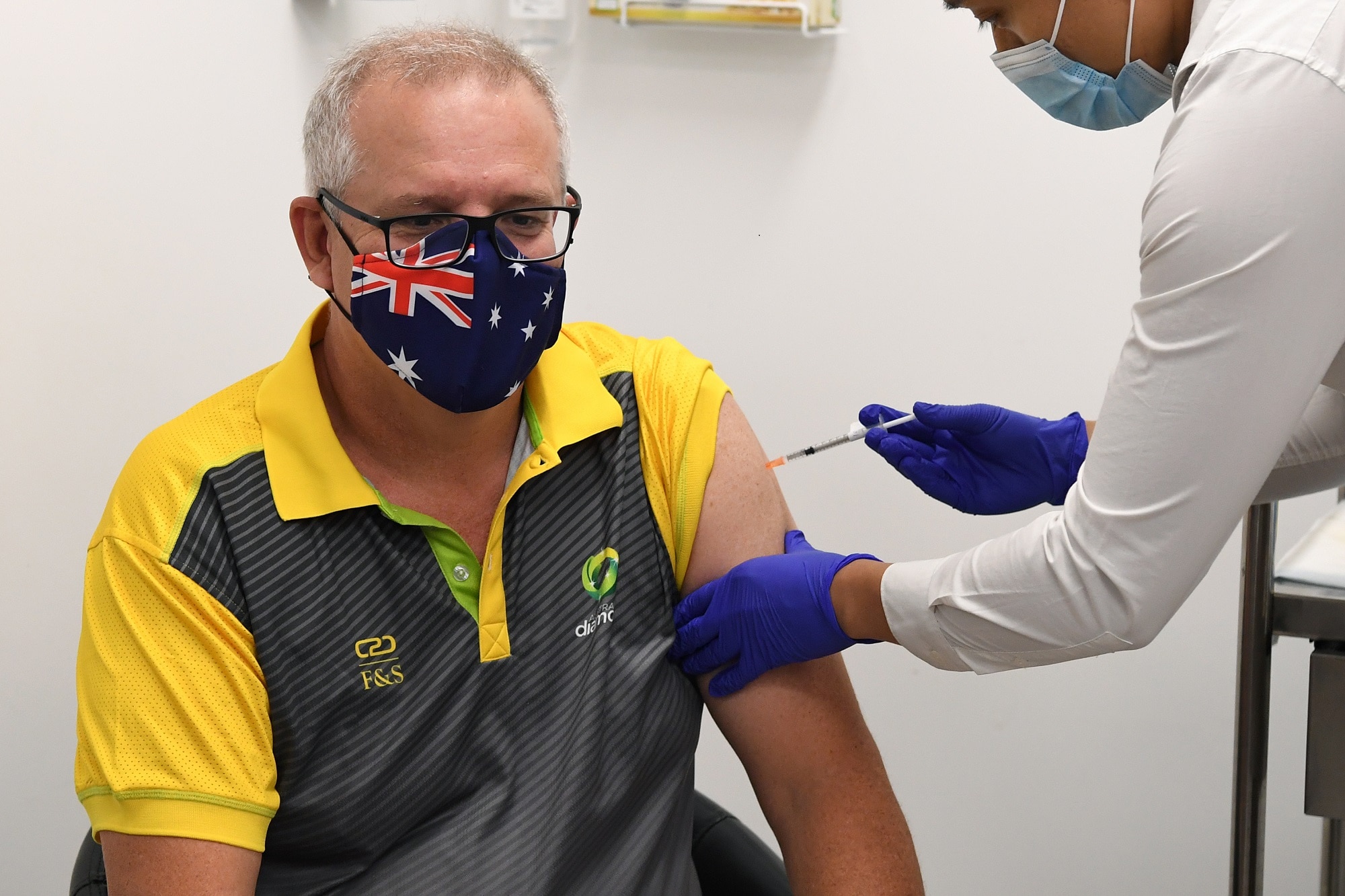From Perth to Sydney, hundreds of Australians rocked up to protests against ‘mandatory vaccines’ last Saturday.
Despite the Prime Minister and Chief Health Officer repeatedly clarifying vaccines will not be mandatory, the rallies were supposedly in opposition of ‘medical coercion’.
The protests were followed by some fans at the Australian Open booing the Tennis Australia chair, Jayne Hrdlicka, at the mention of vaccines and the Victorian government.
Anti-vaxxers vs vaccine hesitancy
Dr Katie Attwell is a senior lecturer from the University of Western Australia’s (UWA) School of Social Sciences.
She said during the pandemic there has been a “reasonably sized minority” of people who are on the fence or unwilling to take COVID-19 vaccines.
“We know that this is much different from the way that people behave in child vaccination, which is where the very vast majority of Australians vaccinate their kids,” she added.
According to her research, vaccine hesitancy could be a result of uncertainty around the speed of vaccine developments and the amount of changing information in the news.
Australia doesn’t currently have a comprehensive survey that illustrates the scope and influence of the anti-vaxxer movement.
However, despite last weekend’s dramatic scenes, Dr Attwell says it’s likely to be a “very small movement.”
“We shouldn’t assume that just because someone is indicating they’re not willing to take the vaccine that means they’re part of the anti-vaccine movement,” she told The Feed.
Dr Axel Bruns, a social media researcher at the Queensland University of Technology, said there’s a distinct, smaller group of hardcore anti-vaxxers.
He said this fringe group often subscribes to other baseless conspiracy theories like QAnon or unsubstantiated beliefs about 5G being ‘harmful’.
“I do think that some of them are trying actively to spread concern, confusion, myths, and disinformation as part of that effort to reach larger audiences,” Dr Bruns said.
Dr Tauel Harper from UWA’s School of Communication has observed anti-vaxxer conspiracies on social media.
One example of a common conspiracy theory he’s seen is “the cap being on or the needle never punching the arm” in videos of politicians being vaccinated.
This baseless theory is easily disproven but demonstrates how easily doubt and misinformation about vaccines can spread on social media, Dr Harper told The Feed.
Dr Bruns said that the “ultimate end goal” for anti-vaxxers is for no one to take vaccines.
He said last weekend’s protests demonstrated this motivation by some anti-vaxxers to reach larger audiences and attract more people to their cause.
One of Dr Bruns’ concerns is that confusion and delays in uptaking vaccines may be caused by those engaging in political point-scoring.
“I’m kind of worried that some people will seek to find fault and seek to perhaps generate some level of concern about the vaccine rollout and the quality of the vaccines to scope out the political points,” he said.
Facebook’s ban and the spread of misinformation
While anti-vaxxer protesters posted live-streams and videos of Saturday’s protests, Australian news sites were noticeably absent from the conversation.
Experts such as Dr Bruns have voiced concern that Facebook’s latest restrictions on Australian news may lead to a further spread of misinformation.
“The timing now is just absolutely horrendous,” Dr Bruns said.
“You’re seeing live-streams from protests and other forms of myths and disinformation that isn’t captured as news by Facebook and can still circulate but none of the debunkings [or] the reliable news can circulate,” he said.
Dr Bruns said that the move by social media companies to de-platform influencers that promote conspiracy theories has been a significant step in reducing the spread of misinformation.
“But it doesn’t mean that all of their views and all of their content is removed, they still have followers and supporters who will go to the trouble of sharing their views in some other way,” he added.
How can we build confidence in vaccines?
For those who harbour questions, being transparent about side effects as well as responding to people’s concerns is crucial in building confidence in vaccines, according to Dr Harper.
“The more transparency you have, the better. Scrutiny is not a bad thing,” he added.
Dr Attwell believes all public institutions need to join forces and “speak in one voice” when it comes to vaccines.
“One of the things that we’ve seen that has been incredibly damaging in the climate change space, for example, has been the idea of experts at war,” she said.
“There are some scientists that will be out there saying, ‘we’re doing the wrong vaccine, we should be doing a different one’,” she added.
“I think if we could be having less of those public arguments, that would be really helpful.”
Influencers and celebrities may also help to boost awareness and trust in vaccines for Australians that don’t regularly engage with the news cycle, according to Dr Bruns.
“They could also provide a pathway to accurate and reliable information in front of the eyes of a general public that doesn’t necessarily care all that much about day to day news coverage,” he said.
“Finding a way to get this out, rather than just doing photo ops and press releases will be really important.”
You may have noticed The Feed is no longer available on Facebook.
Here’s where else you can find our content and follow us:
The Feed website: Save our website sbs.com.au/news/the-feedas a favourite.
Twitter: Follow us at twitter.com/SBSTheFeed
Instagram: Follow us at instagram.com/thefeedsbs/
YouTube: Subscribe at youtube.com/c/TheFeed/videos
SBS News app: Download our app from Apple’s App Store or Google Play and subscribe to the alerts.
SBS News newsletters: Get the latest delivered to your email inbox by subscribing here.
Apple News: Follow the SBS News channel here on an Apple device.
TikTok: Follow us at tiktok.com/@sbsnews_au
Reddit: Join us at u/SBSNews_au









